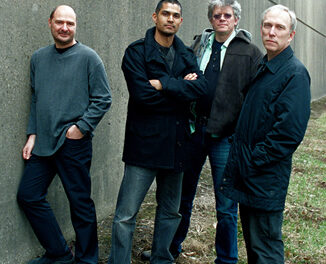There’s a lot to be said in favor of hearing local artists perform with local ensembles, and the Sunday evening concert of the Raleigh Symphony Orchestra, which featured winners of this year’s concerto competition in the annual Benjamin K. Gibbs “Rising Stars” program, provides us yet another excuse to enthuse. Although concerts involving young soloists are somewhat different, the principle applies even in top-level professional settings. One of the best readings of Strauss’ Don Quixote ever preserved in a recording involved the orchestra’s own principals. A recent NC Symphony program featured that regional orchestra’s concertmaster and principal cellist. And in Meredith College’s Jones Auditorium on this occasion, wonderful results stemmed from mutual respect and cooperation that, in one case, involved a student and her teacher and his orchestra. It was really something!
The program began with a strong performance of Beethoven’s Egmont Overture, a work that has figured in many concerts led by the orchestra’s Music Director and Conductor, Alan Neilson.
Violinist Kathryn Reeves Pearson, a sophomore at West Johnston High School (Benson) and a student of Xi Yang, performed the first movement of Mendelssohn’s Violin Concerto in E Minor with her teacher, a distinguished violinist and violist in his own right and a member of the RSO, conducting. This was a glowing, heartfelt reading with no perceptible faults that, not for the last time on this occasion, made one wish the artists had gone on with the rest of their concerti! Also not for the last time, there were cheers and bouquets when the performance ended.
Neilson returned to the podium for the rest of the concert, leading next the first movement of Dvorák’s [Second] Cello Concerto, in B Minor. (The first concerto is virtually unknown, so this is the one that most everyone admires….) The soloist was Alan Toda-Ambaras, a junior at East Chapel Hill High School who has worked since 2001 with Leonid Zilper, of the NC Symphony. I should note that hearing Toda-Ambaras is always a pleasure; he’d participated in a masterclass with Zuill Bailey and Awadagin Pratt, sponsored by the Raleigh Chamber Music Guild, earlier in the day, and I should probably mention that I’ve been hearing him play since he was so small he could have fit into his then-pint-sized cello case, standing up. He has become, over the years, a powerful force in the cello community, and his playing of this celebrated work, one of the milestones in the cello world, was masterful. Neilson and the orchestra gave him superb support, and the result was yet another instance of regret that they hadn’t gone on to play the whole thing. Next time, perhaps.
After the intermission, Joshua Brooks, a high school junior at Woods Charter School (Chapel Hill) who studies with Greg McCallum, played the first movement of Brahms’ Piano Concerto No. 2, in B-Flat Major. This, too, is one of the great prizes of the repertoire, and Brooks did it proud, to borrow a phrase. Again, the playing exuded professionalism throughout, the orchestra was where it needed to be in terms of support, and the reading elicited enthusiastic response.
Last but hardly least came Hsin-I Huang, a high-school junior at the NC School of the Arts (Winston-Salem) who studies with Eric Larsen. (Among other things, his participation in this concert and the competition that led to it is a testimony to the ever-increasing importance of these annual offerings by the RSO.) He played the first movement of Schumann’s Piano Concerto in A Minor, giving a fine performance that was graced by excellent technique and plenty of interpretive insight.
None of these performances sounded like copies of other artists’ readings (by which I mean to say that they didn’t sound like imitations of any well-known records or CDs), and while for the most part they were middle-of-the-road renditions, interpretively, all four soloists gave proof positive that the state of the art of performance in NC is both strong and in the secure hands of the next generation. That we’ve had the opportunity to assess our cultural health, as it were, in this way and for so long redoubles our indebtedness to Maestro Neilson, the RSO, and this event’s annual sponsor, Benjamin K. Gibbs.











